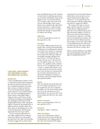 15 citations,
June 2014 in “Integrative cancer therapies”
15 citations,
June 2014 in “Integrative cancer therapies” Pranic meditation significantly improved mental health and quality of life for breast cancer survivors.
 4 citations,
December 2013 in “Acupuncture and related therapies”
4 citations,
December 2013 in “Acupuncture and related therapies” N-acetyl-cysteine shows promise in treating various diseases and may improve skin and hair conditions, but more research is needed on dosages and long-term effects.
 30 citations,
January 2000 in “Dermatologic Clinics”
30 citations,
January 2000 in “Dermatologic Clinics” Finasteride and minoxidil are effective FDA-approved treatments for androgenetic alopecia.
June 2021 in “Faculty Opinions – Post-Publication Peer Review of the Biomedical Literature” The skin basement membrane is specialized for different tissue interactions, important for hair growth and attachment.
December 2022 in “Clinical and experimental dermatology and therapies” Adding the topical gel improved hair growth more than using minoxidil or finasteride alone.
 August 2015 in “Advances in Small Animal Medicine and Surgery”
August 2015 in “Advances in Small Animal Medicine and Surgery” Low-level laser therapy may help regrow hair in dogs with non-inflammatory hair loss.

Chemicals and stem cells combined have advanced regenerative medicine with few safety concerns, focusing on improving techniques and treatment effectiveness.
 159 citations,
October 2015 in “Science Advances”
159 citations,
October 2015 in “Science Advances” Blocking JAK-STAT signaling can lead to hair growth.
 72 citations,
January 2001 in “Drugs”
72 citations,
January 2001 in “Drugs” Minoxidil and finasteride treat hair loss; more research needed for other options.
 December 2023 in “International journal of multidisciplinary research and analysis”
December 2023 in “International journal of multidisciplinary research and analysis” SH-MSCs gel can effectively treat alopecia by increasing IL-10 and decreasing TNF-α gene expression.
 August 2019 in “Stem cells”
August 2019 in “Stem cells” New treatments for hair loss, fertility, and wound healing are being explored.
 65 citations,
October 2008 in “Journal of Neuroendocrinology”
65 citations,
October 2008 in “Journal of Neuroendocrinology”  50 citations,
December 2010 in “Dermatologic Surgery”
50 citations,
December 2010 in “Dermatologic Surgery” Laser treatment can stimulate hair growth for male pattern hair loss.
 45 citations,
May 2018 in “Stem Cell Research & Therapy”
45 citations,
May 2018 in “Stem Cell Research & Therapy” Using patients' own fat-derived cells to treat alopecia areata significantly improved hair growth and was safe.
 40 citations,
August 2018 in “Skin appendage disorders”
40 citations,
August 2018 in “Skin appendage disorders” Some alternative treatments for hair loss might work, but more research is needed.
 30 citations,
June 2015 in “British Journal of Dermatology”
30 citations,
June 2015 in “British Journal of Dermatology” Acne is common in women, often hormone-related, negatively affects quality of life, and requires various treatments.
 29 citations,
September 2020 in “International Journal of Molecular Sciences”
29 citations,
September 2020 in “International Journal of Molecular Sciences” The document concludes that freeze-dried platelet-rich plasma shows promise for medical use but requires standardization and further research.
 29 citations,
May 2020 in “npj Regenerative Medicine”
29 citations,
May 2020 in “npj Regenerative Medicine” Immune cells help regulate hair growth, and better understanding this can improve hair loss treatments.
 19 citations,
November 2012 in “Journal of Dermatological Treatment”
19 citations,
November 2012 in “Journal of Dermatological Treatment” Isotretinoin improves severe acne without changing androgen or insulin levels but may increase body weight and triglycerides.
 10 citations,
February 2011 in “Journal der Deutschen Dermatologischen Gesellschaft”
10 citations,
February 2011 in “Journal der Deutschen Dermatologischen Gesellschaft” The document concludes that proper diagnosis and evidence-based treatments are crucial for managing hair diseases, and psychological support for patients is important.
 8 citations,
June 2011 in “Nature Biotechnology”
8 citations,
June 2011 in “Nature Biotechnology” Stem cell treatments can potentially treat baldness, with one trial showing hair growth after injecting a hair-stimulating complex, and no safety issues were reported.
 8 citations,
January 2008 in “Journal of Cosmetic and Laser Therapy”
8 citations,
January 2008 in “Journal of Cosmetic and Laser Therapy” Hair transplantation for men has improved, offering natural, lasting results, and may be enhanced by certain medications and future technologies.
 4 citations,
September 2021 in “Frontiers in allergy”
4 citations,
September 2021 in “Frontiers in allergy” The conclusion is that understanding the complex relationship between allergies, autoimmunity, and psychological factors is key to treating skin disorders with itching.
 4 citations,
December 2019 in “Skin appendage disorders”
4 citations,
December 2019 in “Skin appendage disorders” Using Platelet-Rich Plasma injections for male-pattern baldness didn't significantly improve hair growth.
 4 citations,
November 2015 in “Journal of Investigative Dermatology”
4 citations,
November 2015 in “Journal of Investigative Dermatology” Testosterone may worsen hair loss by affecting hair growth signals, while different prostaglandins can either hinder or promote hair growth.
 3 citations,
February 2005 in “Expert Opinion on Investigational Drugs”
3 citations,
February 2005 in “Expert Opinion on Investigational Drugs” New treatments for hair loss are being developed using molecular biology.
 1 citations,
July 2015 in “Cambridge University Press eBooks”
1 citations,
July 2015 in “Cambridge University Press eBooks” Testosterone therapy can improve sexual function in women but long-term safety is unclear.
 December 2024 in “Research Square (Research Square)”
December 2024 in “Research Square (Research Square)” Placental stem cell exosome therapy improves hair growth and reduces hair loss.
 February 2024 in “Journal of ayurveda and integrated medical sciences”
February 2024 in “Journal of ayurveda and integrated medical sciences” Ayurvedic herbs can help manage Polycystic Ovarian Syndrome (PCOS).
 December 2023 in “International journal of multidisciplinary research and analysis”
December 2023 in “International journal of multidisciplinary research and analysis” SH-MSCs gel reduced IL-6 and increased TGF-β, suggesting it could treat alopecia.




























